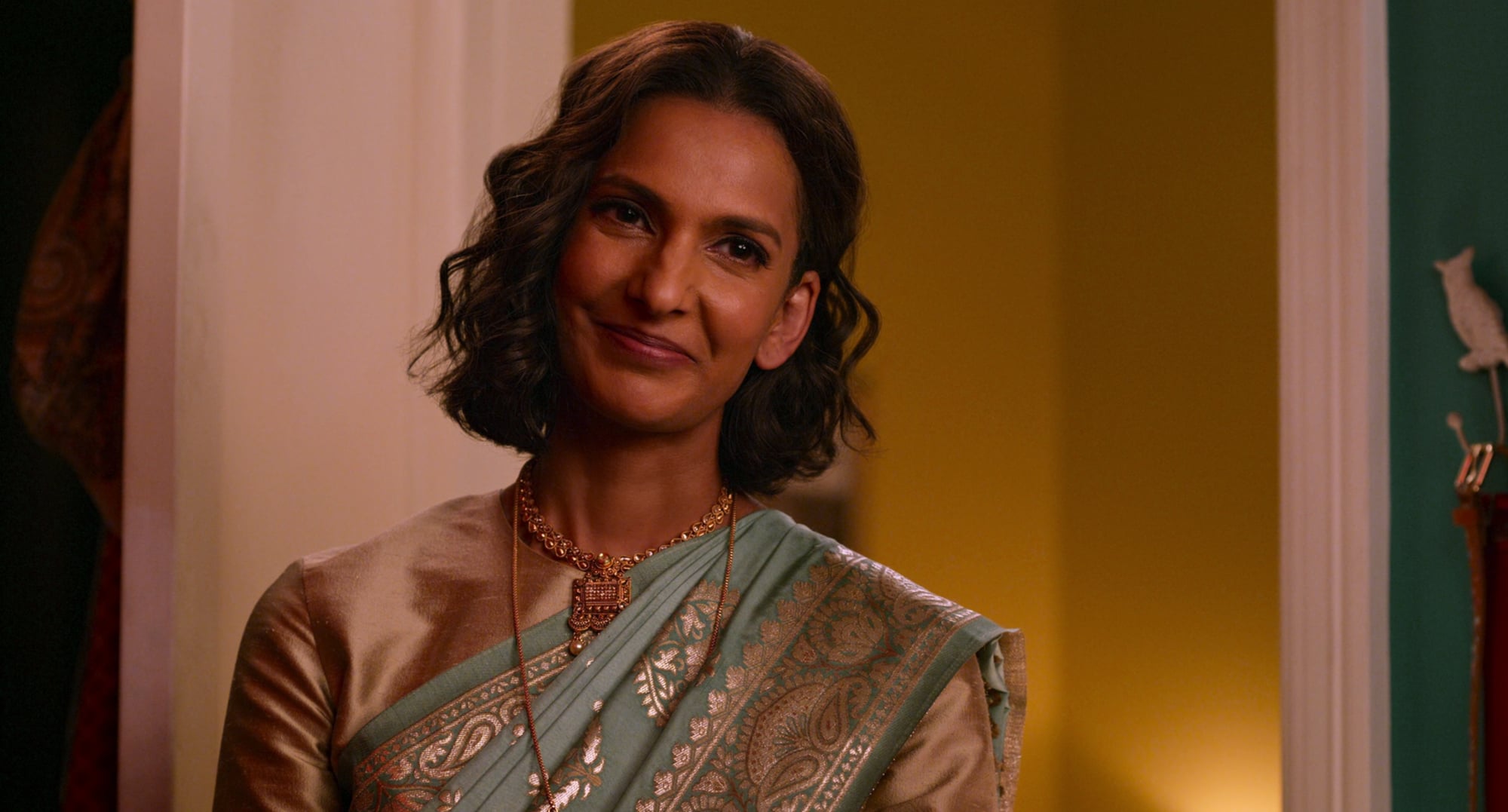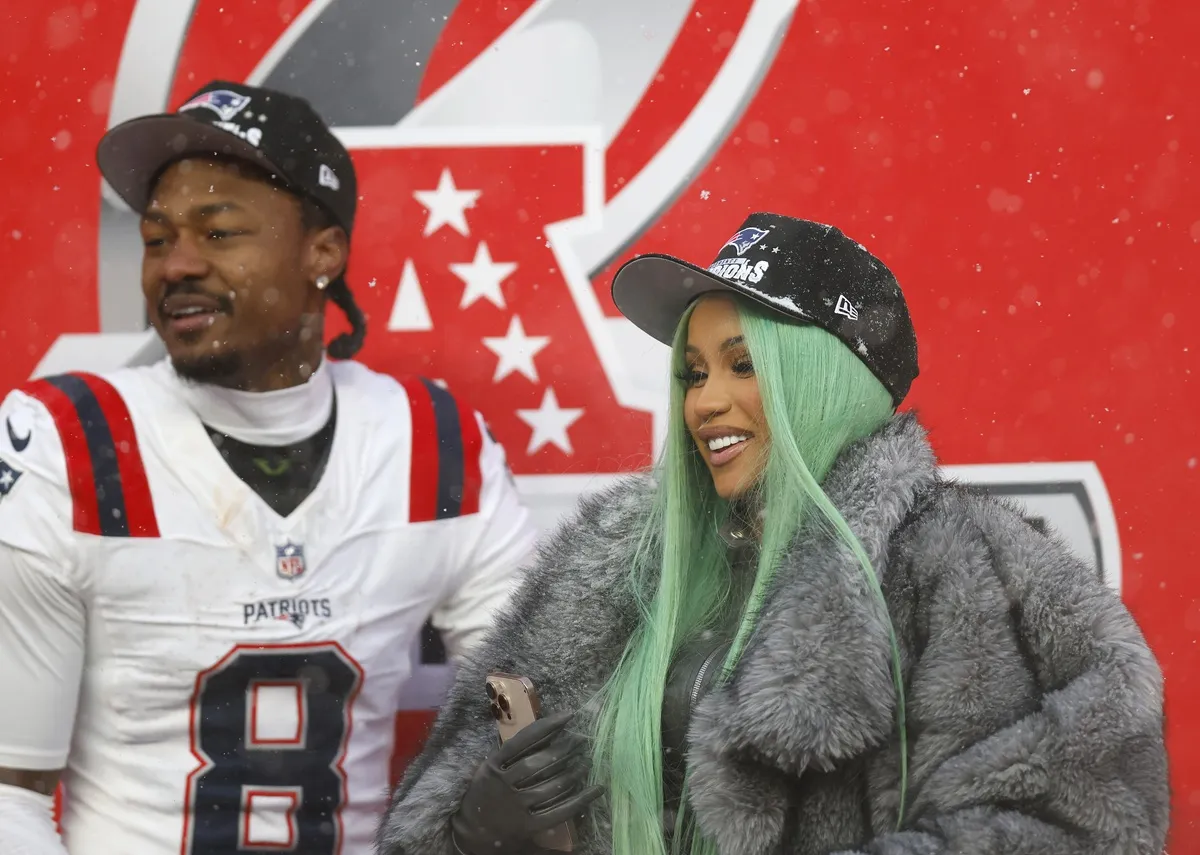
‘Never Have I Ever’ Season 3: Poorna Jagannathan Talks Immigrant Stories ‘That Never See the Light of Day’
Netflix’s teen coming-of-age series, Never Have I Ever, premiered its third season. For this season, Devi deals with romance drama again as she makes her relationship with Paxton public. While the series focuses on her teen story, it still interweaves the family trouble, expectations of marriage, and being part of Indian heritage. Never Have I Ever Season 3 actor Poorna Jagannathan talks about the cultural importance of the series as it heads into its fourth season.
[WARNING: This article contains spoilers for Never Have I Ever Season 3.]
Kamala deals with expectations of the perfect Indian husband in ‘Never Have I Ever’ Season 3
Like the first two seasons, Devi’s coming-of-age story is tied to her home life and being part of a South Asian family. The series has done its job of interweaving multiple cultural elements in a way that feels natural and like home. In Never Have I Ever Season 3, fans see the continuing turmoil of Kamala trying to live up to the expectation of having to get married.
This time, Kamala takes charge of her life a bit more. But it still proves difficult as she sways from what Nirmala wants out of a suitor. When Kamala is no longer engaged, Nirmala refuses to speak to her. But she comes around, but with a proposition.
Nirmala decides to push ahead for Kamala and hosts get-togethers to find her the perfect husband. Kamala has other ideas when she begins dating Manish Kulkarni, Devi’s teacher. Manish is far from what Nirmala wants. He grew up with divorced parents, not strict in Indian tradition and religion. He also is unable to speak any of the Indian languages.
The series also dives into more subtle nuances familiar in an Indian family. But Never Have I Ever Season 3 actor Poorna Jagannathan explains why the series is so impactful regarding South Asian representation.
Before ‘Never Have I Ever’ Poorna Jagannathan has seen many canceled immigrant stories
In an interview with The Hollywood Reporter, the cast of Never Have I Ever Season 3 talk about the series being renewed for a fourth and final season. While the cast expresses their joy, Jagannathan explains a more impactful meaning to the series.
“I have been acting for 15 years, and I cannot tell you the amount of projects about immigrant families that never see the light of day. They don’t make it past the pilot phase. Suddenly we get four seasons of showing such a nuanced portrayal of a South Asian teenager, of a South Asian family, of who we are,” said Jagannathan. “I couldn’t imagine that I have been given this gift. I really can’t.”
Never Have I Ever has made an impact as one of the few hit series with a predominately South Asian cast. Megan Suri, who plays Aneesa, is proud to play a ‘cool’ Indian girl in the series. She explained to Teen Vogue, “we don’t ever see cool Indian girls in the media.”
The third season also breaks a few stereotypes with newcomer Des. Devi thinks he is the stereotypical nerd with no social life, friends, or cool factor. But he is the exact opposite, proving everyone wrong.
Poorna Jagannathan takes ownership of her character story in ‘Never Have I Ever’ Season 3
Being a part of the Netflix series has left a lasting impression on its leading cast, especially on Jagannathan. In an interview with Vanity Fair, she explains that going into a third and fourth season; she was able to take ownership of the story.
“There is an ownership of story that has never happened to me before. This particular story resonates for me on a different level than other projects have, because it’s so entwined with who I am and my culture and where I come from and where I’m going,” said the actor.
There are multiple subtle ties to immigrant or South Asian normalities that Jagannathan resonated with. Jagannathan, too, sits on top of her suitcase to get it closed. The way the characters say goodbye to Mohan’s mom in the second season is a ritualistic way “both Sendhil and I do when we leave our grandparents’ homes.”
The actor remembers a dinner scene from the first season where the cutlery was included, but “we said, ‘No, we’re going to eat with our hands.’ It feels like home to me, and I think, for a lot of viewers, they see home represented, they see details represented that they never thought would be depicted on American TV.”


